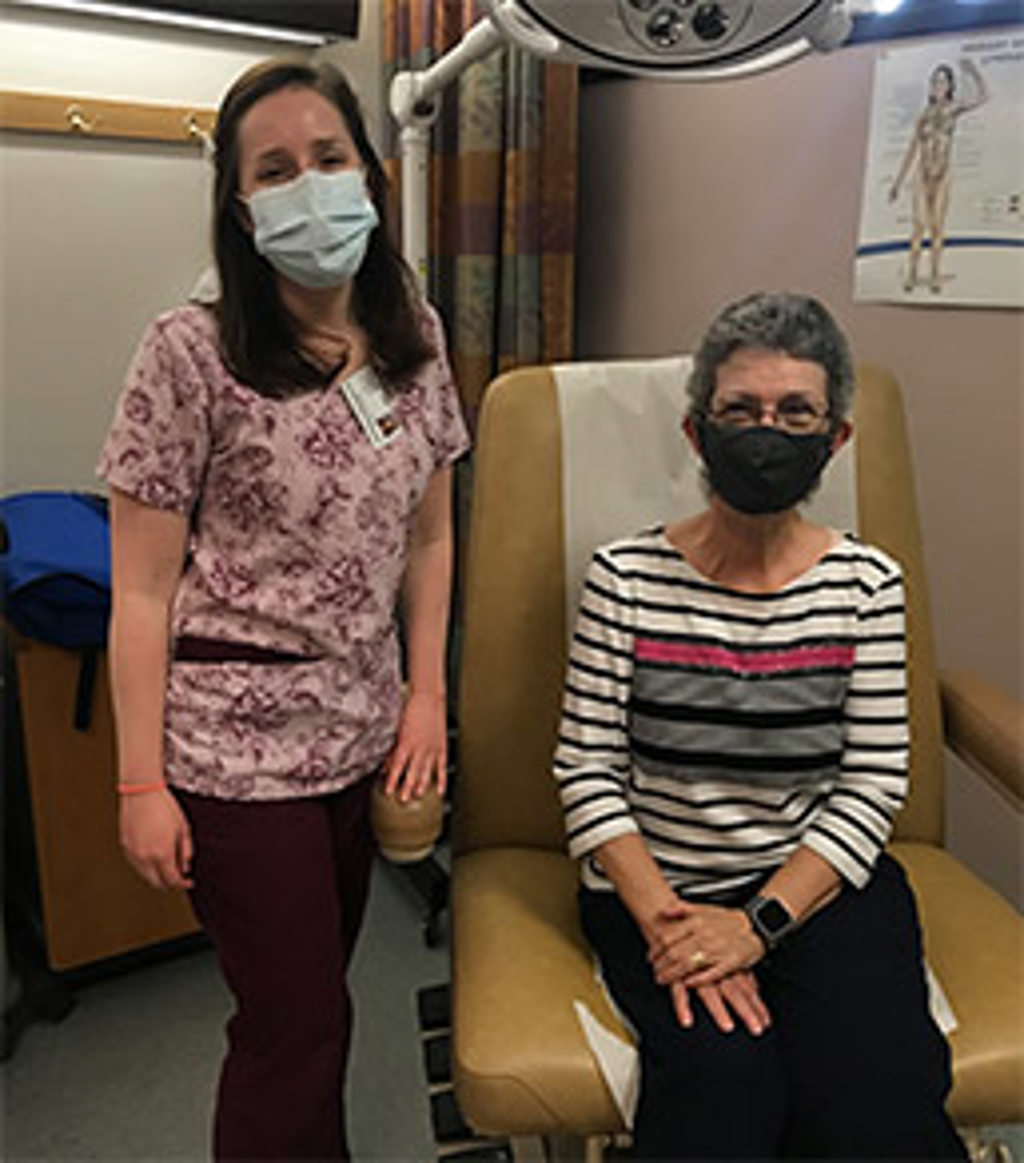MVH's Lymphedema Therapy Is an Rx for Relief
Diana McClelland works part-time as the secretary at the First Christian Church of New Salem. The church's goal is to make a person's time with them life-changing, worthwhile and welcoming. In June 2020, Mrs. McClelland experienced a life-changing event outside of the church when she was diagnosed with Stage III endometrial cancer. Following a total hysterectomy, she began chemotherapy and radiation therapy at Monongahela Valley Hospital's Charles L. and Rose Sweeney Melenyzer Pavilion and Regional Cancer Center. In December 2020, when she was beginning radiation therapy, the Brownsville resident developed lymphedema in her left leg. Lymphedema is swelling due to fluid buildup. It generally occurs when lymph nodes become damaged or are removed. It is very common for people who have had cancer surgery with the removal of lymph nodes or radiation therapy to develop the condition.
"The swelling started in my foot and went all the way up my leg," explained Mrs McClelland. "However, I was blessed because I really didn't have pain - just a heavy or tight feeling around my knee. Sometimes the pressure made it feel as though my whole knee was about to burst."
Dr. Mohsen A. Isaac, MVH's medical director of Radiation Oncology, who was overseeing Mrs. McClelland's treatment, referred her to the Hospital's Center for Wound Management for lymphedema care. She had an appointment within two weeks.
"We try to see new patients as soon as possible," explained Ashley Hough, OTR/L-CLT, a certified lymphedema therapist who oversees MVH's program. "The earlier we can begin interventions at the onset of lymphedema, the sooner it can be controlled."
Mrs. McClelland's treatment plan began with complete decongestive therapy which is manual drainage of the swollen site through massage therapy. It also included compression bandages, skin care to keep the site moisturized and exercise.
Initially, Mrs. McClelland had lymphedema therapy two times per week, but now she only has weekly appointments and practices self-care. Her therapy will be completed in two weeks and then she will have a follow up visit in a month and will not be due back for six months.
"Lymphedema is chronic but manageable. We emphasize that it must be cared for at-home every day and people must be vigilant in their compliance," said Mrs. Hough.
Mrs. McClelland summed up her experience very succinctly. "I live closer to another health system but I chose to go to Monongahela Valley Hospital's Center for Wound Management because of their willingness to develop the best individualized treatment plan for me. Plus, they listen to me and not only treat me with their knowledge and expertise - they provide a high level of compassion and concern."
The Center for Wound Management at Monongahela Valley Hospital provides state-of-the-art treatments for all wounds — often the result of an underlying medical conditions such as diabetes, neuropathy, arthritis, peripheral arterial insufficiency, autoimmune disease and factors associated with immobility. Hyperbaric Oxygen Therapy, a gently pressurize treatment used to speed healing through the intake of pure oxygen, is among the treatments offered. The interdisciplinary team is comprised of board-certified specialists in orthopedic and vascular surgery, enterostomal therapy, podiatry, family medicine, infectious diseases and hyperbaric oxygen therapy. For more information call 724-258-1912.

